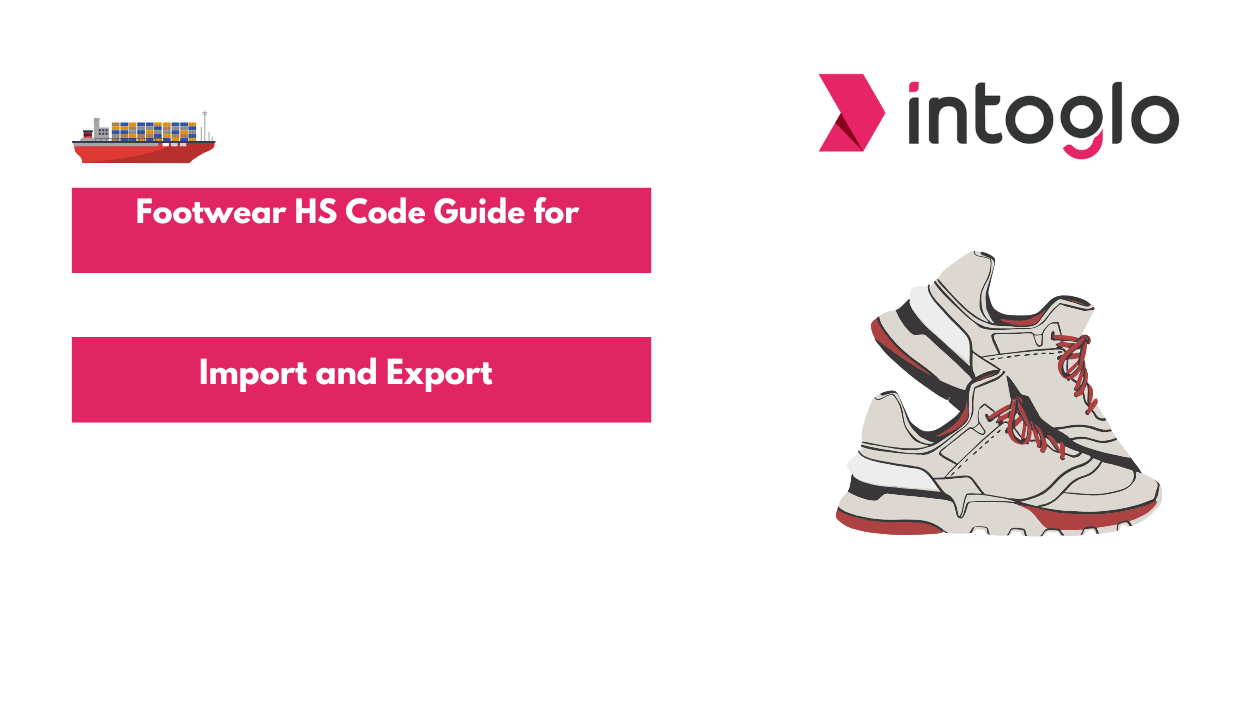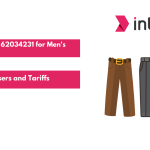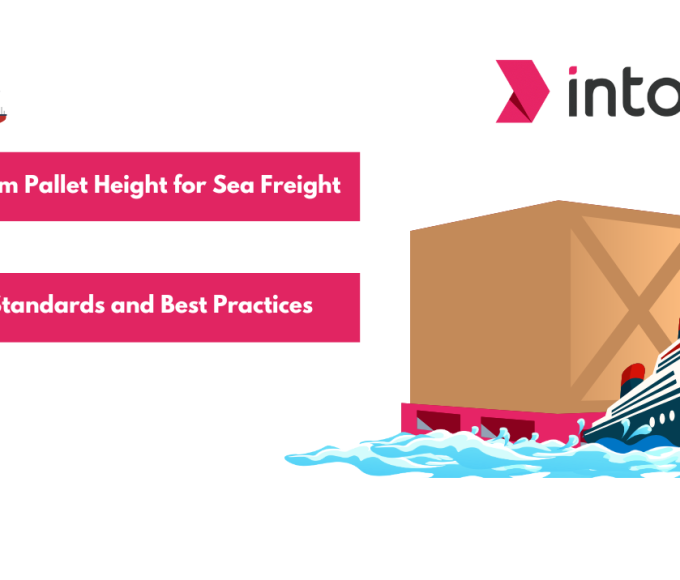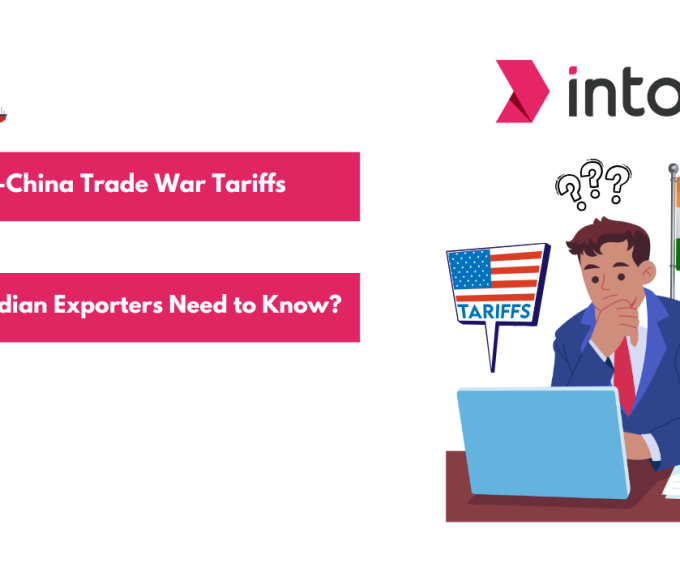The HS Code 6400 is the umbrella classification for all types of footwear and similar articles under the International Harmonized System (HS). HS Code 6400 includes a broad spectrum of footwear, ranging from everyday shoes to specialized footwear such as sports shoes, rain boots, and gaiters.
The HS Code 6400 provides a standardized framework for identifying footwear and its components in international trade. It is essential for global commerce, as it facilitates the movement of goods across borders by defining the various types of footwear based on their materials (rubber, leather, plastics, textiles) and intended uses (sport, waterproof, casual, protective, etc.).
Key Industries Using HS Code 6400 Goods
The footwear industry is a major player in the global economy, with a wide variety of end-user industries that rely on 6400 products. Here are some of the key sectors where footwear and its components are essential:
- Footwear Manufacturing: This is the primary industry that directly falls under HS Code 6400, including companies that design, manufacture, and sell shoes, boots, sandals, and other types of footwear.
- Sports and Recreation: Companies producing running shoes, basketball shoes, soccer cleats, and ski boots.
- Retail and E-commerce: Retail industry including both brick-and-mortar stores and online marketplaces. This also includes everything from casual shoes to high-performance boots.
- Agriculture and Industrial Workwear: This caters to industrial and agricultural sectors. For example, waterproof boots, safety footwear with protective toe caps, and gaiters are essential in sectors where workers need durable, specialized footwear to ensure safety and comfort.
- Fashion and Luxury: This includes designer footwear and luxury boots, shoes, and sandals. Footwear is a major part of the fashion cycle, and understanding the correct classification helps brands manage production and distribution internationally.
What Goods are Covered Under HS Code 6400?
This category encompasses both finished footwear and parts of footwear, as well as certain related articles. The goods covered under HS Code 6400 span a variety of materials, designs, and uses, from everyday shoes to specialized protective gear.
Here’s a breakdown of the different categories of goods included under HS Code 6400 (Section 64):
HS Code 6401 – Waterproof Footwear with Rubber or Plastic Soles
| HS Code | Product Type | Description |
| 6401.10 | Footwear incorporating a protective metal toe-cap | Waterproof footwear made of rubber or plastic with a metal toe-cap. |
| 6401.92 | Waterproof footwear covering the ankle but not covering the knee | Waterproof boots or shoes, covering the ankle but not extending to the knee, made with rubber or plastic soles. |
| 6401.99 | Other waterproof footwear | General waterproof footwear, made from rubber or plastic soles, but not fitting the other specified categories. |
HS Code 6402 – Other Footwear with Rubber or Plastic Soles
| HS Code | Product Type | Description |
| 6402.12 | Sports footwear: Ski-boots, cross-country ski footwear, snowboard boots | Sports footwear designed for snow activities, made with rubber or plastic soles. |
| 6402.19 | Other sports footwear | Other sports footwear made with rubber or plastic soles, excluding ski or snowboard boots. |
| 6402.20 | Footwear with upper straps or thongs assembled by plugs | Footwear with straps or thongs (e.g., sandals) attached to the sole via plugs. |
| 6402.91 | Other footwear covering the ankle | Footwear covering the ankle, made with rubber or plastic soles. |
| 6402.99 | Other footwear | General footwear made with rubber or plastic soles, not specifically covering the ankle. |
HS Code 6403 – Footwear with Rubber, Plastic, Leather, or Composition Leather Soles and Leather Uppers
| HS Code | Product Type | Description |
| 6403.12 | Sports footwear: Ski-boots, cross-country ski footwear, snowboard boots | Sports footwear with leather uppers and rubber/plastic soles, designed for snow activities. |
| 6403.19 | Other sports footwear | Other sports footwear with leather uppers and rubber/plastic soles. |
| 6403.20 | Footwear with leather soles and leather straps across instep and big toe | Footwear made with leather soles and leather straps. |
| 6403.40 | Footwear with a protective metal toe-cap | Footwear made with leather soles and incorporating a protective metal toe-cap. |
| 6403.51 | Other footwear with leather soles, covering the ankle | Leather-soled footwear covering the ankle. |
| 6403.59 | Other footwear with leather soles | General leather-soled footwear not covering the ankle. |
| 6403.91 | Other footwear with leather uppers, covering the ankle | Leather uppers with rubber/plastic/leather soles, covering the ankle. |
| 6403.99 | Other footwear with leather uppers | General footwear with leather uppers and rubber/plastic/leather soles, not fitting other categories. |
HS Code 6404 – Footwear with Rubber, Plastics, Leather, or Composition Leather Soles and Textile Uppers
| HS Code | Product Type | Description |
| 6404.11 | Sports footwear: tennis shoes, basketball shoes, gym shoes, training shoes | Footwear with rubber or plastic soles and textile uppers, designed for sports like tennis, basketball, etc. |
| 6404.19 | Other sports footwear | Other sports footwear with rubber or plastic soles and textile uppers, excluding specific types like tennis or basketball shoes. |
| 6404.20 | Footwear with outer soles of leather or composition leather | Footwear with leather soles and textile uppers. |
HS Code 6405 – Other Footwear
| HS Code | Product Type | Description |
| 6405.10 | Footwear with uppers of leather or composition leather | General footwear with leather or composition leather uppers. |
| 6405.20 | Footwear with uppers of textile materials | General footwear with textile material uppers, including fabric, synthetic textiles, or other soft materials. |
| 6405.90 | Other footwear | General category for footwear made with various materials not specifically covered by the above codes. |
HS Code 6406 – Parts of Footwear and Related Articles
| HS Code | Product Type | Description |
| 6406.10 | Uppers and parts thereof, other than stiffeners | Uppers for footwear and parts (excluding stiffeners) not yet attached to soles. |
| 6406.20 | Outer soles and heels, of rubber or plastics | Outer soles and heels made of rubber or plastic materials for footwear production. |
| 6406.90 | Other parts of footwear | Other parts of footwear not covered by the previous subcategories, such as in-soles, heel cushions, etc. |
Summary of Key Product Types in Section 64:
- Waterproof Footwear (HS 6401): Footwear designed for waterproofing, often made from rubber or plastics, including metal toe-caps.
- Sports Footwear (HS 6402, 6404): Footwear designed for specific sports activities, such as ski boots, snowboarding boots, tennis shoes, and basketball shoes.
- Footwear with Leather Soles and Uppers (HS 6403): Leather-based footwear, including protective metal toe-caps and sports footwear.
- General Footwear (HS 6405): Footwear made from various materials, including leather, textile, and combinations of both.
- Footwear Parts (HS 6406): Uppers, soles, heels, and other parts of footwear, as well as gaiters and leggings.
Effortless HS Code Classification with Intoglo
At Intoglo, we simplify international trade with accurate HS Code classification for your products.
- Image-based HS Code: Simply take a photo, and let our AI instantly classify your product. No more tedious manual input—just quick, accurate results with visual recognition.
- Classify with Confidence: Each HS Code comes with a confidence score, so you can be sure you’re making the right choices every time.
- US-specific HTS Codes: Get access to precise 10-digit HTS codes for the US market, along with detailed descriptions and tariff information for each code level.
Try Our AI-Based HTS Code Scanner in 2 Minutes
India to US Export/Import – Footwear (HS Code 6400)
| Product Type | HS Code | Duty (approx.) |
| Waterproof Footwear (Rubber/Plastic Soles) | 6401.10 | 37.5% |
| Footwear with Protective Metal Toe Cap | 6401.10 | 37.5% |
| Sports Footwear (Tennis, Basketball Shoes) | 6404.11 | 20% |
| Other Sports Footwear | 6402.19 | 35% |
| Footwear (Textile Upper, Rubber/Plastic Soles) | 6404.19 | 35%- 66% |
| Footwear (Leather Upper, Rubber Soles) | 6403.12 | 20% |
| Work Boots (Safety Footwear with Rubber Soles) | 6403.40 | 20% |
| Leather Dress Shoes | 6403.51 | 20%- 33 1/3% |
| Sandals, Flip Flops | 6404.20 | 35%- 66% |
| Gaiters and Leggings (Protective Gear) | 6406.10 | 20%- 84% |
| Footwear Parts (Outer Soles, Heels) | 6406.20 | 80% |
| Parts of Footwear (Uppers, Insoles) | 6406.90 | 33 1/3%- 72% |
Trade and Market Statistics
Understanding the global market trends and trade flows for footwear is essential for businesses involved in the export and import of these goods. The following sections offer insights into the top exporters, top importers, and the fastest-growing exporters for the year 2024, providing valuable market intelligence for decision-makers.
Top Exporters of Footwear (2024)
In 2024, the following countries remained the largest exporters of footwear, reflecting their manufacturing capacity, infrastructure, and global market demand:
| Rank | Country | Export Value (USD Billions) |
| 1 | China | $46.9 Billion |
| 2 | Vietnam | $20.7 Billion |
| 3 | Indonesia | $6.4 Billion |
| 4 | Germany | €9.4 Billion |
| 5 | Spain | €3.4 Billion |
| 6 | India | $2.0 billion |
Key Highlights:
- China continues to lead as the world’s top exporter of footwear. In 2024, it exported 9.2 billion pairs worth $46.9 billion, experiencing a 2% increase in volume but a 7% drop in value compared to the previous year.
- Vietnam has significantly expanded its foothold in the footwear market, particularly in the areas of sports footwear and leather goods, securing its position as the second-largest exporter globally. From January to November 2024, Vietnam saw a 13% growth in exports, reaching $20.7 billion.
- Germany, now the largest footwear exporter in Europe, maintained its upward trajectory with an 11% increase in export value, totaling €9.4 billion in the first eleven months of 2024.
- Spain also saw steady growth, with a 9% rise in volume and a 10% increase in value, reaching €3.4 billion during the same period.
- India experienced a 3% rise in export volume, shipping 240 million pairs, but faced a 2% decrease in value, dropping to $2.0 billion in the first eleven months of 2024.
Top Importers of Footwear (2023)
The following countries were the largest importers of footwear in 2023, reflecting strong demand driven by both domestic consumption and retail sectors:
| Rank | Country | Import Value |
| 1 | United States | $35 billion |
| 2 | Germany | $28 billion |
| 3 | France | $7.4 billion |
| 4 | UK | $6.68 billion |
| 5 | Italy | $6.07 billion |
| 6 | Japan | $5.41 billion |
| 7 | Netherlands | $4.08 billion |
| 8 | Belgium | $4 billion |
| 9 | Hong kong | $3.56 billion |
| 10 | Spain | $3.32 billion |
Fastest Growing Exporters (2024-2023 Comparison)
Some countries have shown significant growth in footwear exports in recent years, driven by improved production capabilities, new trade agreements, and rising global demand.
| Country | 2023 Export Value/Volume | 2024 Export Value/Volume | Growth Rate (%) |
| Vietnam | $31.12 billion | $20.7 billion (Jan-Nov) | 13% (value) |
| Indonesia | $6.43 billion | $6.4 billion (Jan-Nov) | 9% (value) |
| India | N/A | $2.0 billion (Jan-Nov) | -2% (value), 3% (volume) |
| Spain | $3.68 billion | $3.4 billion (Jan-Nov) | 10% (value), 9% (volume) |
| Germany | $11.27 billion | $9.4 billion (Jan-Nov) | 11% (value), -1% (volume) |
Key Highlights:
- Vietnam: Achieved a 13% growth in export value, with exports reaching $20.7 billion (Jan-Nov 2024), driven by strong demand in sports and leather footwear.
- Indonesia: Saw a 9% increase in export value, maintaining a steady export of $6.4 billion (Jan-Nov 2024), particularly in sports shoes and affordable footwear.
- India: Experienced a 3% rise in export volume but a 2% decline in value, totaling $2.0 billion (Jan-Nov 2024), indicating growth in volume but pressure on pricing.
- Spain: Recorded a 10% growth in value and 9% in volume, with exports reaching $3.4 billion (Jan-Nov 2024), fueled by strong demand for premium leather and fashion footwear.
- Germany: Experienced an 11% rise in export value, totaling $9.4 billion (Jan-Nov 2024), despite a slight 1% decline in volume, reflecting a focus on high-value products.
Interested in Shipping Any Footwear Category?
At Intoglo, we offer door-to-door FCL solutions from India to the USA to meet the needs of footwear exporters. Whether you’re shipping sports footwear, leather shoes, or work boots, we provide efficient and reliable services that ensure your goods reach their destination seamlessly.
Here’s what we bring to the table:
- Door-to-Door FCL Shipping from India to the USA
- Global Team Support
- AI-Based HTS Code Scanner
- Insurance Upon Client Request
- Instant Rates
- Extensive Warehouse Network
- End-to-End Shipment Visibility
- Customs Bond Services
Get in Touch with the Experts.
FAQs
1. How do I classify my footwear product under the correct HS Code?
To classify your footwear correctly, you need to determine the material composition (e.g., leather, rubber, plastic) and its intended use (e.g., sports, casual, protective). Intoglo makes this easier with AI-powered image-based classification, allowing you to snap a picture of your product for instant and accurate classification.
2. Do HS Codes affect my shipping costs?
Yes, the HS Code directly impacts shipping costs as it determines the tariffs and customs duties applicable to your goods. The more accurate your classification, the more likely you are to avoid unexpected fees and delays at customs.
3. What is the difference between HS Codes and HTS Codes for the USA?
HS Codes are used globally for product classification, but in the United States, the HTS Code (Harmonized Tariff Schedule) provides a more specific 10-digit classification with additional tariff rates and product details. Intoglo provides easy access to both HS and HTS Codes to help ensure compliance with U.S. customs regulations.
4. How can I check if my footwear product is correctly classified for US imports?
You can use Intoglo’s HS Code tools to get precise US-specific HTS codes, which include detailed tariff and regulatory information for footwear imports. Additionally, you’ll receive confidence scores to ensure accurate classification, avoiding potential compliance issues at customs.
5. Are there any restrictions or regulations I should be aware of when shipping footwear internationally?
Yes, each country may have its own import regulations and tariff requirements for footwear, including quality standards, material restrictions, and labor laws. Intoglo helps you navigate these regulations with up-to-date tariff information and compliance checks, ensuring smooth and legal shipments across borders.









Leave a comment